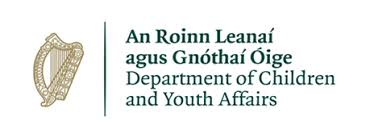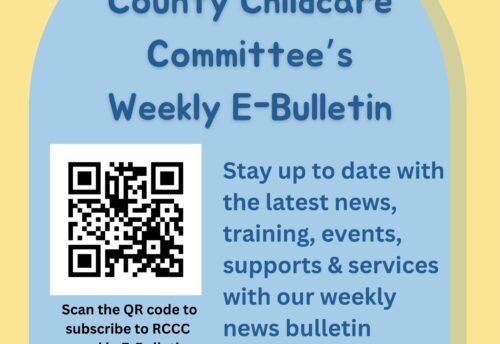
Minister Zappone Will strengthen child protection and quality requirements for early years services
Minister Zappone will strengthen child protection and quality requirements for early years services
Additional regulations to increase Tusla’s enforcement powers
The Minister for Children and Youth Affairs, Dr. Katherine Zappone, will strengthen quality requirements for early years services. This reiterates her commitment made in First 5 (the Whole-of-Government Strategy for Babies, Young Children and their Families), to review the Regulations for early years services.
Minister Zappone has written to the Chair of Tusla requesting that they outline the necessary changes to strengthen their enforcement powers. Changes are required to speed up the process by the regulator of responding to unacceptable standards.
Examination of additional powers for Tusla
Minister Zappone has asked officials in her Department to examine what additional powers can be given to Tusla, to close down or suspend services immediately, where it has critical concerns. This may require amendments to the Child Care Act so that permanent or temporary closures can happen.
The Minister has asked officials to consider best practice nationally and internationally while examining the powers available to her. She has also asked officials to examine how parents can be informed at the earliest possible opportunity of concerns being investigated. Currently, Tusla can only publish reports after due process and this process may take time, during which parents may have no idea that the regulator has concerns.
Mandatory display of certificate of Registration and conditions
The Minister will add new regulations to make it mandatory for Early Years Providers, to display prominently, a certificate of Registration on their premises. alongside details of any conditions imposed by Tusla. New Regulations, that came into force in 2016, required the registration of all Early Learning and Care services and gave Tusla’s Early Years Inspectorate the power to deregister services, or to attach conditions to their registration. This year Tusla has attached conditions to 95 Early Years Services.
Minister Zappone said: “I was appalled to witness the intolerable treatment of children shown in the RTÉ Investigates programme last week. It was reprehensible to witness this type of behaviour despite having improved standards and regulations and increasing the number of inspections.
“As Minister for Children my priority has, and will always be, putting the protection of the child first. Parents should always feel confident in placing their children into a childcare facility registered with the State. It’s very important that parents understand that not every childcare facility in the country has issues like the ones shown last week. Most service providers work tirelessly to provide a great service and I commend those services.
“However, I want to send a strong message to the tiny number that do not operate in the best interests of children – the regulator will not tolerate this, and I will not tolerate it.
“I am determined to provide, where necessary and where legally possible, the authority to strengthen Tusla’s powers to ensure all early learning care providers deliver a high-quality, child-centred service.”
Professional Regulator
The Minister has instructed that the establishment of a Professional Regulator be prioritised. She had previously set out her intention to establish a Professional Regulator, in conjunction with the Department of Education and Skills, for the early learning and care sector in First 5. This is being considered under the Workforce Development Group, established recently. The Minister expects that this regulator would operate a fitness to practice function. This would remove any practitioners who do not provide the correct standard of care.
Investment in childcare
There has been a 117% increase in Government investment in the last four Budgets. This has enabled additional investments in quality, whilst also delivering significant improvements in affordability and access. Some of the investments in quality include:
- A significant increase in funding for Tusla’s inspectorate, resulting in an increase in the number of (whole-time-equivalent) inspectors from 37 in 2014 to 58 today. As a result there has, since 2014, been a 90% increase in the number of inspections carried out each year. In 2018, Tusla carried out 2,513 inspections. (There are currently 4,435 early learning and care services registered with Tusla.). Tusla now systematically carries out unannounced inspections.
- In January 2018, Tusla established an ‘unsolicited information’ office, to process information, concerns and complaints about early years services. These can inform the inspection and registration process. 413 pieces of information were received in 2018.
- In December 2018, Minister Zappone signed into law the first ever Regulations for School-Age Childcare Services. Those Regulations came into force in February of this year, and the registration process for all school-age childcare services is under way right now. It will now be possible for Tusla to inspect school-age services – something that was previously not possible.
Developing a new model of public funding
Minister Zappone will announce shortly the establishment of an independently chaired expert group to look at a new model of public funding. It will address affordability and quality. This commitment, initially set out in First 5, will look at how fees to parents can be controlled, and how services can be incentivised for high quality. The new National Childcare Scheme to be introduced later this year will only be available through registered providers, both centre-based (creches) and home based (childminders).
Budget 2020 negotiations – further investment requirements
In preparation for Budget 2020 negotiations, Minister Zappone is seeking a package of investment for increased quality measures. These include, further resources for registration and inspection; increased funding for Continuous Professional Development – including training in the early years curriculum; further enhancements to the Learner fund; the development of mechanisms to withdrawn funding from service providers who do not meet quality requirements; and the development of guidance for parents to ensure that they can recognise high quality in early learning and care services. Increased Investment in upskilling the workforce is a priority for her.
Concluding, Minister Zappone reiterated her determination to continue to examine additional safeguards to root out the despicable behaviour seen last week. “The vast majority of those working in Early Learning and Care are champions of children. They care, they educate, and they take pride in playing their part in children’s development. The existence of a dedicated Department of Children and Youth Affairs in Ireland is evidence of the commitment to focus on doing what is required to deliver the best child outcomes. I will not rest when it comes to the quality of care and education we deliver to our youngest children. We know that high quality experiences provided at this young age can have a massively positive impact on the lives and future outcomes of our youngest children. It is essential that 100% of services meet the standard we have set out as required of them.”
ENDS
Notes for editors
Reforms undertaken since the 2013 RTÉ Prime Time Investigates documentary, A Breach of Trust, include:
- The publication of all inspection reports. (Publication takes place at the end of a robust process that includes giving the provider the right of reply.)
- The introduction of a minimum qualification requirement for staff working directly with children in early learning and care services. (The minimum requirement is a full qualification in Early Childhood Care and Education at Level 5 on the National Framework of Qualifications. 22% of staff in the sector have degrees and this is incentivised through higher capitation payments from DCYA for graduates delivering the ECCE programme.)
- A move to systematically carry out inspections on an unannounced basis.
- A significant increase in funding for Tusla’s inspectorate, resulting in an increase in the number of (whole-time-equivalent) inspectors from 37 in 2014 to 58 today. As a result there has, since 2014, been a 90% increase in the number of inspections carried out each year. In 2018, Tusla carried out 2,513 inspections. (There are currently 4,435 early learning and care services registered with Tusla.)
- Major reform of the Tusla Inspectorate’s governance and management structure in 2015. The Inspectorate now operates on a national basis, with consistent operational policies and procedures, and enhanced line management and supervisory structures.
- Establishment within Tusla’s Early Years Inspectorate of an Unsolicited Information office in January 2018, to process information, concerns and complaints about early years services. Last year Tusla received 413 pieces of unsolicited information.
- Introduction of the first-ever Regulations for School-Age Childcare Services, which came into force in February 2019. As a result of the new Regulations, the registration process for all school-age childcare services is currently under way, and it will now be possible for Tusla to inspect school-age services, which was previously not possible.
- Introduction of – and substantially increased funding for – a range of quality initiatives, including: the Better Start Quality Development Service (established in 2014) which employs 130 mentors to advise and support early learning and care services; education-focused inspections of the ECCE programme by the Department of Education and Skills Inspectorate (begun in 2016); a dedicated “Learner Fund” to support upskilling of staff (since 2014); and a significant increase in funding for staff training.
- Publication in 2018 of First 5, the Whole-of-Government Strategy for Babies, Young children and their Families, which sets out a 10-year vision to improve quality in the Early Learning and Care sector and includes a commitment to review the Regulations, to have a graduate-led workforce and to double public investment.



Leave a Reply